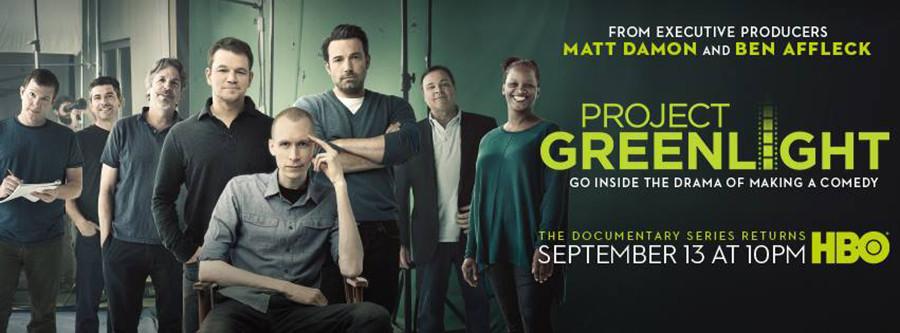‘Project Greenlight’ looks at reality of filmmaking
The fourth season of Project Greenlight Premieres September 13th and 10 PM on HBO.
September 14, 2015
NYU students were able to preview the first two episodes of “Project Greenlight” on Wednesday. A Q&A with producer Marc Joubert and the show’s winner Jason Mann was also hosted. Mann and Joubert answered questions about both the TV show and their moviemaking process, which is fitting for “Project Greenlight’s” goal as a series: to strike a balance between the drama of TV and the real life process of making a film.
HBO’s documentary series “Project Greenlight” returns after a decade-long hiatus to bring audiences into the complex process of making a feature film. Produced by Matt Damon and Ben Affleck, “Project Greenlight” takes a first-time director and gives them $3 million and a support team to create their first feature film. “’Project Greenlight’ differs from other reality shows because the winner is revealed in the first episode, which gives the series an opportunity to highlight the creative and constructive process rather than the competitive aspect.
Finalists are given a generic comedy script and must make a short film that conveys their vision and ability in working with raw material. The winner is chosen on the basis of these thirteen shorts, as well as each contestant’s original submission material. The final decision was made by Damon and Affleck along with a team of producers and the Farrelly brothers, renowned comedy writers.
Although the interviews are only a small part of the series, they set the tone for the shows. In the process of picking a winner, the producers discuss the talent of each contestant and raise questions about diversity, material, style and collaboration. They then decide if the contestant is a sound financial investment. The show provides a rare inside view of the industry behind our entertainment.
“Project Greenlight,” like other reality shows, is not immune to exaggerating content to create dram. Between the directing team made up of a recently broken up couple and the constant battle over shooting, the show delivers on its entertainment value each week as a reality show, as well as giving viewers a perspective of the filmmaking process. The show works because it combines the look at the technical process of making of a large film with the reality-show drama provided by the cast.
A version of this article appeared in the Monday, Sept. 14 print issue. Email Cecelia F. Charendoff at [email protected].

























































































































































